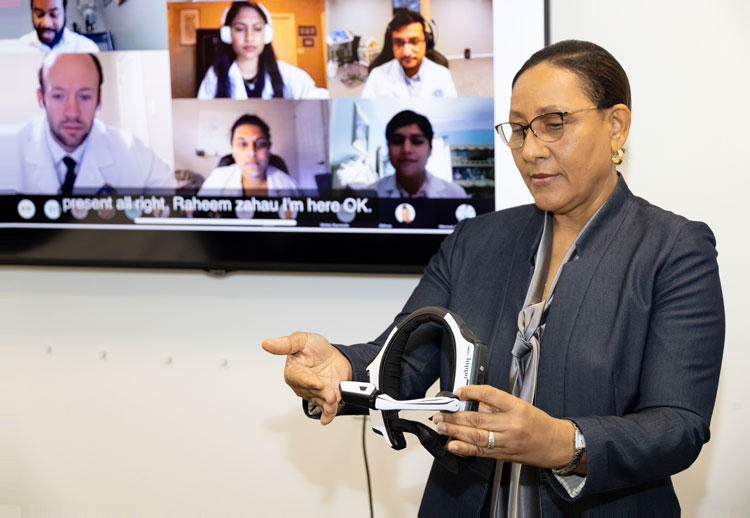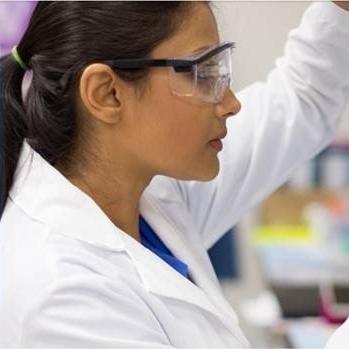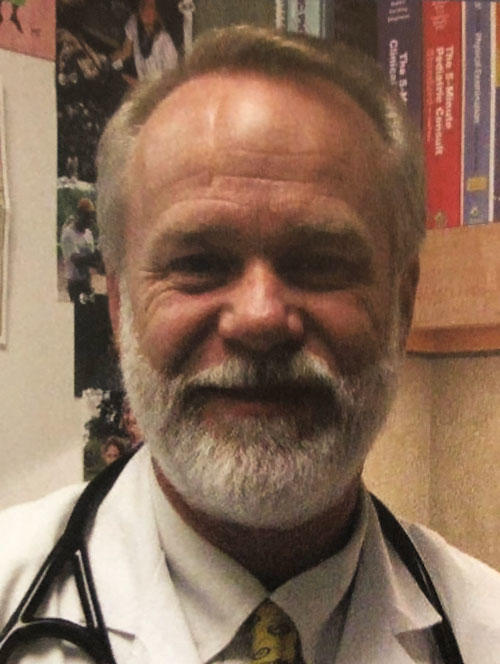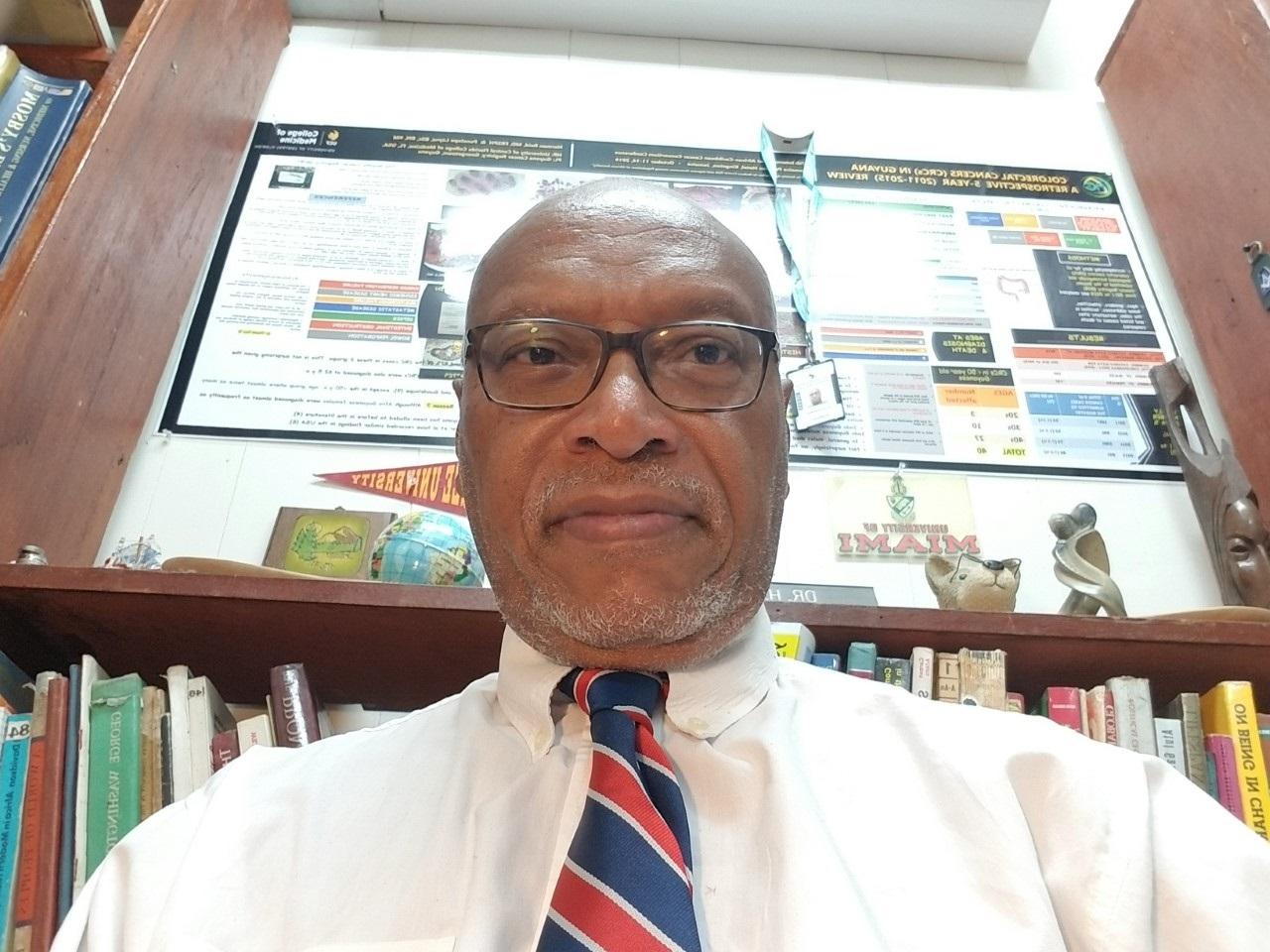When the pandemic forced medical academic faculty to adjust their hands-on teachings to a virtual-learning environment, leaders at Ross University School of Medicine (RUSM) relied on systems already in place and quickly converged to develop robust alternatives. New modes of academic delivery that utilized technology resulted in enhanced interactive learning opportunities, innovative virtual patient opportunities and a renewed strength in community collaboration.
In the Medical Sciences program, students continued accessing pre-recorded and live-streamed lectures and classroom time was redirected to virtual interactive academic sessions with the expansion of case-based and team-based learning. Formative assessment sessions became virtual break-out rooms with multiple small-group sessions facilitated by faculty, yielding a high level of participation.
“We noticed an increase in overall student-faculty engagement through formative assessments and evolved our practices with a readiness mindset that capitalized on effective ways to interact with students through online opportunities,” said Rhonda McIntyre, MBBS, FAAP, FRCP(C), associate dean of Medical Sciences at RUSM, adding the change prompted leaders to swiftly prepare faculty with development resources on how to best employ existing and new technology. “This was an incredible benefit on both sides. Faculty found solutions to academic delivery and student interaction, and many students seemed to feel more comfortable engaging with us in this environment.”
Maximizing Virtual Options
Switching to a complete virtual curriculum and support service operation presented challenges, but academic leaders remained focused on the educational continuum and addressing issues proactively. To solve the lack of hands-on experiences, faculty utilized videos to aid in teaching clinical skills and enhanced the cognitive process by encouraging students to comprehensively talk through the steps of a clinical examination. “[Clinical students] learned to think on the spot,” said Seeth Vivek, MD, DLFAPA, associate dean of clinical sciences and chair of psychiatry. Staff learned new facets about telehealth and discovered several rewarding, unanticipated advantages — no more space limitations in a clinical setting, opportunities to participate in less-accessible areas such as rural settings or internationally and providing students with a window into patients’ home environments.
“Our world continues to move toward telemedicine. Certain specialties were hamstrung but there were others in which students and faculty became quite creative,” Dr. Vivek continued, citing students enrolled in the neurology rotation who invited patients’ family members to assist with such exam basics as pupil and reflex tests. “This generation of students will be better trained for telemedicine and the utilization of technology.”
Drs. McIntyre and Vivek commended the entire RUSM community for its patience, understanding and partnership. They also thanked colleagues for innovative virtual advising and academic support, and students for finding ways to retain extracurricular activities, with Dr. McIntyre adding, “Our students and faculty are resilient.”
Learn More
Read about how RUSM engaged students last year. To start your medical education, visit RUSM.
Road to Residency Library
The Road to Residency: Navigating the Student Journey series is designed to provide you with thought-provoking pieces on topics important and relevant to your medical school journey. Please visit our Road to Residency library.
If you have a topic you’d like to learn more about, please share your feedback with us.




